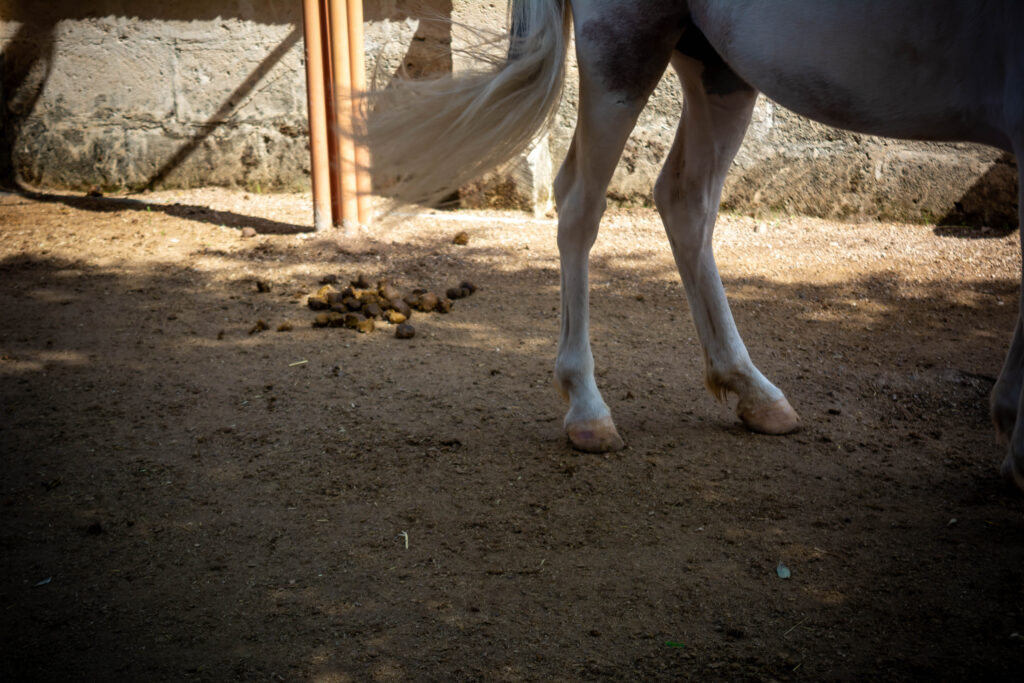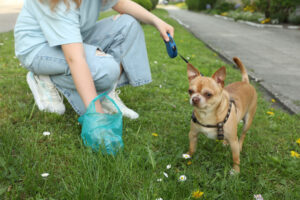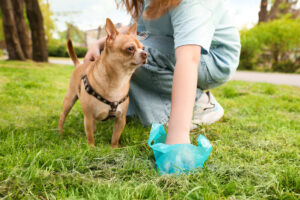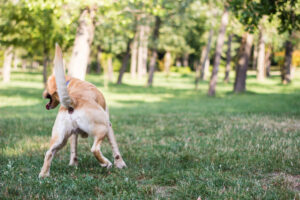I’ve lived on horse property in Colorado Springs for eight years now, and I can tell you that manure management is one of those things nobody warns you about when you’re dreaming of owning horses.
You focus on finding the right property, building the perfect barn, getting your fencing sorted out. Then reality hits and you’re dealing with tons – literally tons – of horse waste every year.
Two horses generate about 20 tons of manure annually. That’s not a typo. When you’re mucking stalls every day, it doesn’t seem like that much, but it adds up fast. And here in Colorado Springs, with our crazy weather and elevation, that waste becomes a bigger problem than it would be almost anywhere else.
The altitude changes how everything decomposes. Manure that would break down quickly at sea level sits around much longer here.

We Clean Up Your Horse Waste. Call Us Today!
Add in our intense UV exposure and dramatic temperature swings, and you end up with waste that either bakes into concrete-hard chunks or turns into a soupy mess depending on the weather. Neither situation is pleasant to deal with.
I learned all this the hard way. Spent my first few years thinking I could handle waste management myself. Composting, spreading on pastures, whatever seemed easiest at the time. But the volume is relentless, and the climate here doesn’t cooperate with any of the standard approaches people recommend.
Health Issues You Don’t See Coming
The parasite problem with horses is real, and poor waste management makes it exponentially worse. When manure accumulates near grazing areas, you create this endless cycle where horses are constantly reinfecting themselves. Your deworming schedule becomes irrelevant because they’re picking up new parasites faster than you can treat them.
Flies are another nightmare that sneaks up on you. Colorado Springs summers create perfect breeding conditions for flies, and horse manure is like a luxury resort for them. Once fly populations explode, they don’t stay contained to your property. They become everyone’s problem, which doesn’t make you popular with neighbors.
The bacterial contamination is something most horse owners don’t think about until someone gets sick. Horse manure contains everything from E. coli to salmonella, and when you’re handling it daily, cleaning stalls, and walking through contaminated areas, you’re constantly exposed. Kids on horse properties are especially vulnerable because they’re always getting into everything.
Our dry climate here means these bacteria and parasites can become airborne more easily than in humid areas. What stays put in other climates can literally blow around El Paso County, spreading contamination over much wider areas than you’d expect.
Water Problems Are Expensive
A lot of horse properties around Colorado Springs rely on well water, and groundwater contamination from horse waste is a real issue. The nitrogen and phosphorus in manure leach into the water table, and our rocky soil doesn’t filter contaminants the way other soil types do. Pollution moves through the ground faster here.
I know several property owners who’ve had to drill new wells because their water became contaminated. The cost runs into tens of thousands of dollars, assuming you can even find clean water elsewhere on your property. Some people have had to connect to municipal water systems, which is expensive and not always available in rural areas.
Surface water contamination affects the whole community. Runoff from manure piles carries bacteria and nutrients into local streams and watersheds. As development pressure increases around Colorado Springs, these cumulative impacts become more significant.
The Social Reality
Horse properties often exist in areas where neighbors are close enough to be affected by your waste management decisions. Persistent odors and fly problems strain relationships fast. People who initially thought having horses nearby was charming change their minds when your waste management affects their ability to enjoy their own property.
Property values take a hit when waste management becomes visible or problematic. Real estate agents will tell you that horse properties with obvious manure issues are harder to sell and typically go for less money. Buyers see waste problems as indicators of poor overall property management.
The aesthetic impact is immediate. Even well-maintained facilities look unprofessional when surrounded by accumulated manure. It affects how people perceive your operation and your standards as a horse owner.
Environmental Responsibility
Local regulations around waste management are getting stricter as the area develops. Properties that don’t comply with environmental standards face potential fines and legal issues. The Colorado Springs area is part of several important watersheds, and pollution from horse properties contributes to broader environmental problems.
The cumulative impact of multiple horse properties becomes significant as the area grows. Being a responsible horse owner means understanding that your waste management decisions affect the broader community and environment.
Making It Work
Professional waste removal eliminates most of these problems before they become serious issues. Instead of constantly battling waste accumulation and its consequences, you maintain a clean, safe environment year-round. The cost is reasonable when you consider the potential expenses of contamination, health problems, or property damage.
Regular removal also maintains flexibility in how you use your property. Areas that aren’t contaminated with accumulated waste can be repurposed for different uses as your needs change. This keeps your options open and protects your long-term investment.
Horse ownership in Colorado Springs comes with unique challenges that require different approaches than what works in other climates. Regular waste removal isn’t just about convenience – it’s about protecting your health, your property value, your relationships with neighbors, and the environment we all share. The investment in proper waste management pays dividends in every aspect of horse property ownership.




